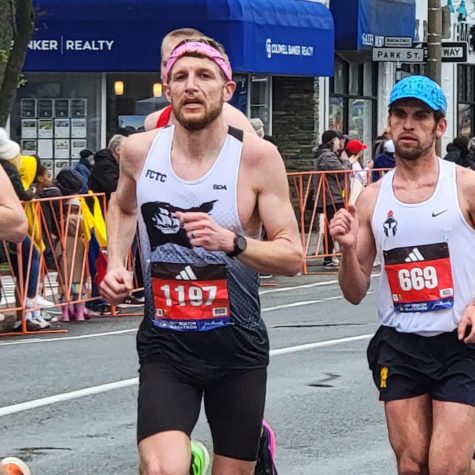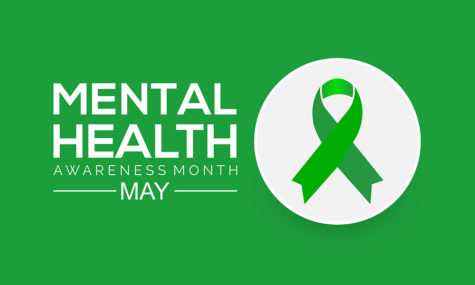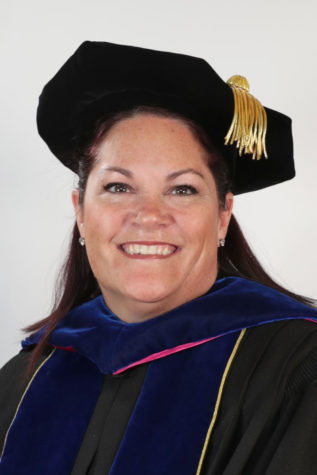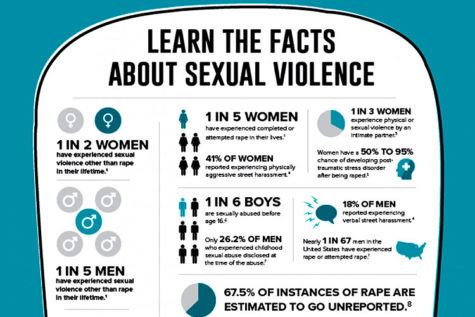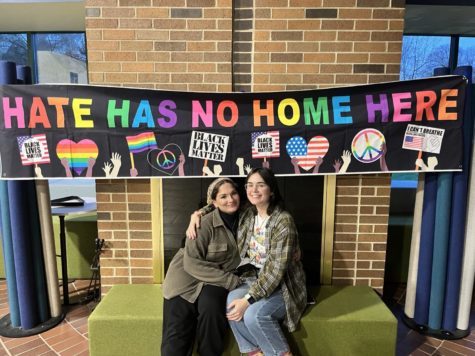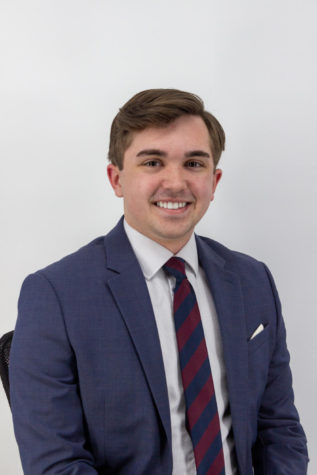A day in the life of a COVID-19 doctor
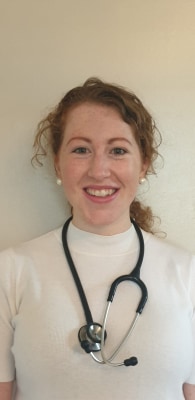
April 22, 2020
Rhona Boyle is a 2013 alumna and is currently a junior doctor in Scotland. Here she describes a typical day as a coronavirus doctor amid a pandemic.
I knew the first year of practicing medicine would be challenging. But I never once considered that within 6 months of becoming a doctor, I would be working on an Infectious Diseases ward on the frontlines of a global pandemic.
I get up at 5:30 a.m. to exercise and meditate before work. I have coffee and breakfast with my husband and then a twenty-minute commute to the hospital. As soon as I get to the ward, I change into scrubs so that my own clothes do not become contaminated. I look at the list of patients on our ward, first checking to see if any of my patients have died during the night. If they have, I’ll make a mental note to complete the death certificate as soon as possible so that the patient’s family can begin funeral arrangements.
We start the day with a ward round, where the senior doctor visits each of the patients in turn. Usually the ward round would consist of a large team of doctors. Now however, to reduce our exposure and to save our supply of personal protective equipment (PPE), just one junior doctor will accompany the consultant.
Before we enter each room, we look the other doctor up and down to check for all the essential PPE – facemask, eye protection, apron and gloves. As we exit, we remove each item in the correct order, making sure not to accidentally touch our faces or contaminate anything around us. Even the best mask cannot protect us against the infinite possible errors.
As we visit patients, the consultant will do most of the talking. When we wash our hands before exiting each room, I try to offer some friendly conversation. I ask the patients about their family or their profession.
Being ill can be a dehumanizing experience. Learning about a patient’s story is a privilege, and allows me to establish context around a person and build rapport. This is more important than ever, as building these doctor-patient relationships is essential to gaining trust. Patients are literally trusting us with their lives.
A new barrier to effective communication is PPE. The facemask hides my facial expressions and I must keep reminding myself that my patients cannot see that I am smiling behind it! For patients undergoing certain oxygen therapies I also wear a clear face shield and it is both difficult to hear and be heard through. Nevertheless, I smile with my eyes and I wave as I go by their rooms.
Time permitting, we try to take a team coffee break in the afternoon. The nurses set up what we have affectionately called “the hydration station” and the nursing and medical staff take five to grab a cup of coffee together and chat. These moments are so necessary and allow us some sense of normality.
The most difficult part of our job has been watching patients die without their families being present. Many relatives cannot visit because it is simply too dangerous to come to hospital.
Our nursing staff have been incredible. They are the ones who sit with dying patients. It is the nurses that assist patients in making phone calls to say goodbye to their loved ones. Many tears have been shed by colleagues as we learn to cope with many more deaths than we are normally exposed to.
At any moment during the day patients may become more ill. Often this happens with several patients simultaneously. Symptoms worsen, oxygen levels fall and some patients require immediate life-saving care. I am constantly grateful for the advice of my colleagues, often just a year ahead in their training than I am.
If I am working a long day (a 12.5 hour shift), I will handover to the night team. This involves highlighting any patients we are concerned about.
On my drive home, I’ll put on an upbeat playlist. My husband and I will usually have a hot tea when I arrive home and debrief about our respective days. We’ve had some big conversations recently about our wishes should either of us become critically ill. I might watch a little TV or read a book before bed. It can be very difficult to switch off.
The COVID-19 pandemic has been a baptism of fire into medicine. Each morning I give thanks for another healthy day and for my ability to give whatever help I can.
Viruses don’t respect borders. Old, young, rich, poor, from every nationality and every walk of life, we are all vulnerable to infection. To survive this experience, we must work together. Xenophobia and distrust can be pathogens in their own right.
Medicine is a hugely demanding profession. What keeps me going is the privilege of bearing witness to the most joyous and most difficult moments of my patients’ lives. What we do is truly a vocation.

